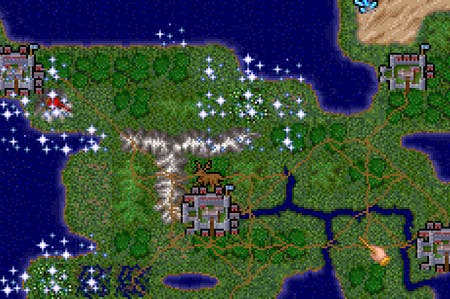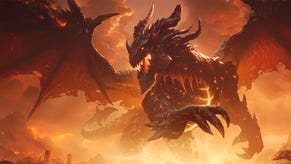Retrospective: Master of Magic
Well-manaed.
I can never find ice cream combinations that I really like. Sure, I can find compromises. I can find ice creams that are perfectly pleasant, even ice creams that I quite enjoy, but it's only in my dreams that I can walk into that mighty gelato parlour, its counter ten foot long, three foot deep and packed with every flavour I can possibly imagine.
"What would please you?" the proprietor asks, "Chocolate perhaps, but with cherries in? Toffee with nuts, but not just any nuts and instead all the nuts that you like? All these rolled into one?"
"How is it that you're able to offer me so much, and in so many combinations?" I ask.
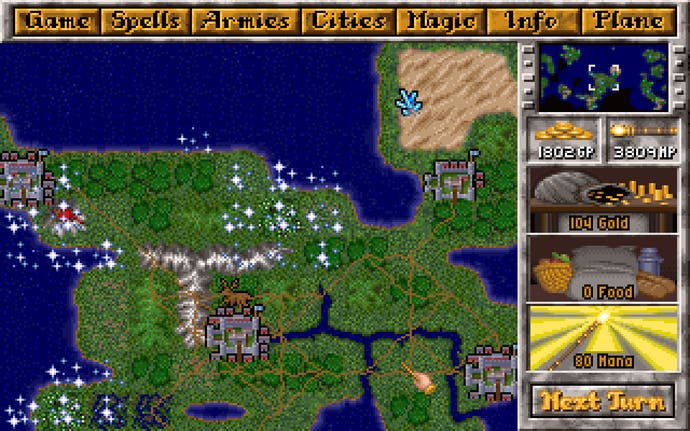
"Ah, because my parlour is a clumsy metaphor for Master of Magic, Simtex's fantasy counterpart to Master of Orion." Only then do I notice how pixellated this parlour is. I try to order, but the proprietor immediately crashes. It was a faithful representation to the last.
Eighteen years after it was first released, I'm still impressed by Master of Magic, and I still haven't seen everything it has to offer. True, I'm not saying I've played it non-stop since release, but I've kept a copy of its now microscopic install tucked away on every PC I've owned. I do this both because it's so tiny that removing it would be pointless, but also because it hasn't yet been surpassed by any other fantasy 4X game. Curiously enough, Master of Magic remains the best example of its kind.
It goes like this: you begin by making yourself a wizard, choosing from an array of special abilities and, more critically, filling your dusty bookshelf with arcane texts. These spellbooks can all cover the same subject, perhaps nature magic or necromancy, or you can toss together a selection to suit. Whatever your choice, it'll have a profound effect on the rest of your game; your spellbooks dictate the focus of your magical research, determining the creatures you can call on and the powers you'll employ.
The more spellbooks you have on a subject, the more specialised you become, giving you the opportunity to research increasingly esoteric enchantments, but limiting the breadth of your skill. A wizard who selects only sorcery spellbooks may enjoy metamagical manipulation, but they'll never feel the warm tingle of nature's healing spells and for this we must pity them. And then fireball them.
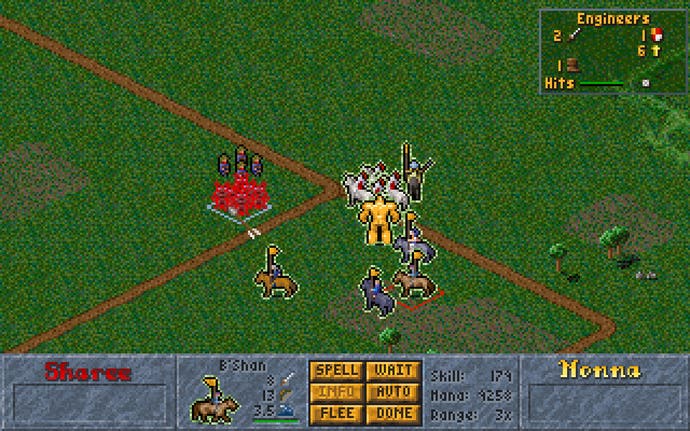
After picking these preferences and peccadilloes, you choose the race of beings that will serve as your underlings and as a basis for your army. Your very distinct creation - perhaps an orcish necromancer with a talent for forging magic items, or a diplomatic healer whose enchantments are particularly difficult to dispel - is then let loose in a dangerous world.
And it's a world absolutely thronging with stuff. While it would be selling Master of Magic short to describe it as Civilization with centaurs, that's not a bad place to start. But its lands are not virgin territory, and instead are thick with haunted ruins, monster-infested caverns and even portals to another plane, a plane that can be slowly explored and even settled if you can beat back the strange and splendid creatures that tread its soil.
So you find yourself clearing that nearby cave of the sprites that haunt it, then capturing a magical node on the edge of your town, returning home with hauls of gold, mana, even magical items. As you plough your profits into expanding your modest territory, you consider settling nearby lands. Heroes turn up at your front door to offer their services and find themselves test-beds for your latest spells. Before long, Sir Harold can barely lead your armies, so burdened is he by the magical items you made for him, while Brax the Dwarf never asked for the ability to walk on water and probably hasn't bathed in weeks.
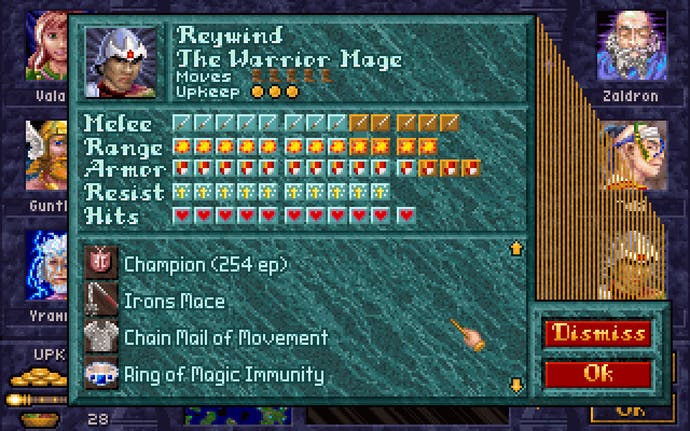
You also get a chance to flex your magical muscles in combat, raining down spells from on high and boosting your units with temporary buffs. After you've conquered a few other cities and begun summoning all sorts of strange beasts, you'll find your armies becoming curiously cosmopolitan. Elven archers from a town you seized are flanked by Lizardman shamans, behind them stands a great Colossus. Your Steam Cannon stands ready to fire on Sir Harold's order. Nobody knows why, but Brax is now glowing.
Master of Magic has absolutely no sense of restraint. It's like the game has some deep-seated psychological condition, some terrible case of hedonism. It's like a kleptomaniac spent a week in Games Workshop, came home to you and didn't so much empty their pockets as point excitedly at the van they'd parked outside. It's not just that the game features hundreds of spells and hundreds of units, it's that it's entirely content to let you combine and recombine these in endless permutations, as easily as if they were Lego.
This conjurer's collage allowed for some extraordinary combinations of powers. A week doesn't go by without my reading about some strategy game's scissor/paper/stone dynamics, but Master of Magic had dagger/parchment/moonstone/bony-finger-of-death-and-much-more at its disposal, with even basic troops turning out to be absolutely ruinous in certain situations. The game's deadly Phantom Warriors were a relatively simple unit, but these incorporeal soldiers could completely ignore their opponent's armour and boasted worrying immunities. It was never easy to know what to prepare for, and even your most powerful heroes might remain vulnerable to a particular spell or unit.
This was partly because the game couldn't give a damn about balance. It's entirely possible to begin playing and find yourself surrounded by the lairs of horribly powerful monsters, your starting town besieged by creatures entirely immune to your weapons. At the same time, there are more than a few ways to create disgustingly powerful units and heroes, combining all sorts of weapons and abilities, stacking bonuses you didn't even know you had and then steamrolling your way to victory.
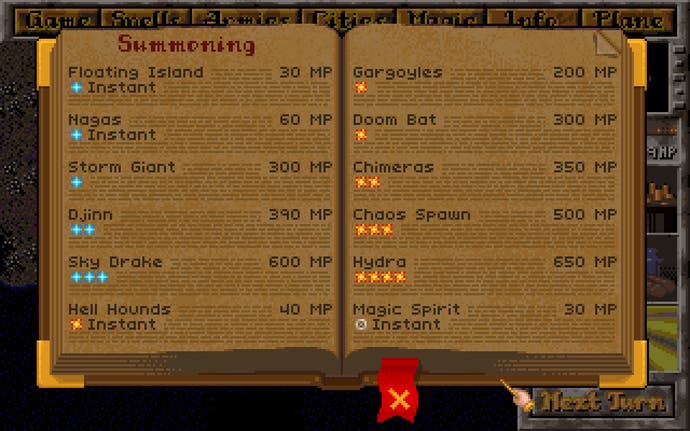
Sadly, the real catch was that the AI could never keep up with everything that was going on, even anything that was going on. Opposing wizards were slow, weak and passive, often nothing more than an inconvenience to a more powerful player, with random encounters frequently providing more of a challenge. Then, of course, there were the bugs and crashes. A thorough patching eventually sorted much of this, though in a largely pre-internet age many players were never able to benefit.
But I'm sure you can see the appeal of taking on the mantle of a great and terrible wizard, gradually bending a world (actually, two worlds) to your will. It remains something of a mystery why Master of Magic hasn't received a sequel or remake, although it seems the game is hexed. Not long after Simtex announced that they were working on a follow-up, they were closed, and when Microprose later announced that they were taking up the project, the office responsible was also forced to shut down. Later sequel deals with other developers fell through, including one with Stardock, of Galactic Civilizations fame And when Stardock attempted a spiritual sequel in Elemental: War of Magic, it was critically panned.
While the Civilization and Master of Orion series both continued, Master of Magic became a curious evolutionary dead end. Other fantasy strategy games, like Age of Wonders and Heroes of Might and Magic, never dared to be as random or as reckless. They were more measured experiences, not packed to the point of bursting with stuff, like a gaming piñata just waiting to be smashed open by the overeager, overindulgent player.
I still hold out hope that there are designers out there who, like me, were engrossed by all those permutations and possibilities, designers who can work their magic and give us a sharper, smarter update to this game. In the meantime, I freely admit that I'm still under its spell.
